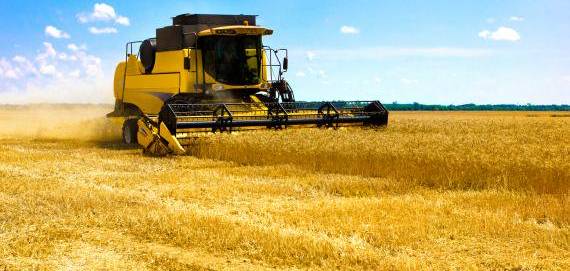
The agricultural world faces major challenges and agriculture has no other solution than to reinvent itself. The traditional agricultural model as we have known it for decades can no longer exist. It will give way to a new generation of farmers who now see their jobs in a modern way. They adapt. They are diversifying. They hang up the bio train. They think in terms of carbon footprint. They calculate the ton of CO² per hectare and per year that they will be able to store in order to be in line with environmental requirements. They understand the environmental pressures and societal expectations placed on them. This is why, in order of battle, they take up the challenges one after the other and bring their passion to the world of tomorrow. Our farmers of yesteryear are moving away at high speed!
The ecological constraints and standards in order to fight against greenhouse gas emissions are imposed on everyone. Agriculture is no exception. And we can congratulate ourselves on that because agricultural practices have long been open to criticism from an ecological point of view. It was time to put an end to it in order to move towards more supervised and healthier methods. This is in part what the National Low-Carbon Strategy (SNBC introduced by the Energy Transition Law for Green Growth ) requires. The agricultural world must comply with this roadmap established by the government. In a global sense, the National Low-Carbon Strategy (SNBC) aims to fight against climate change. ”It provides guidelines for implementing, in all sectors of activity, the transition to a low-carbon, circular and sustainable economy . It defines a path for reducing greenhouse gas emissions up to 2050 and sets short- and medium-term objectives: carbon budgets. It has two ambitions: to achieve carbon neutrality by 2050 and to reduce the 'carbon footprint of French consumption. ”
However, childbirth is far from painless. In addition to the heavy constraints that they must now integrate into their activities in terms of standards and prohibitions, farmers are subject to all kinds of external threats: soil degradation, increased input costs, consequences of climate change. This last point has, moreover, become of the most concern. Indeed, if previously the vagaries of the weather were a stroke of bad luck, today they represent a variable with which we must deal every day.
Here, agriculture is suffering the wrath of a changing climate, the very exercise of its activity of which is accused of contributing greatly to climate change! Cruel irony which illustrates how difficult it is for farmers to now take a serene path to practice their profession. Vicious circle from which it is urgent to get out to restore a somewhat tarnished image.
First of all, there are the angry realities. agriculture is France's second-largest greenhouse gas emitter. The Ministry of Ecological Transition recently reported that this sector of activity alone contributes 19% of total emissions, or 85 megatonnes of CO2 equivalent in 2019. Globally, the share is increasing from 5% to 24%.
Cattle rearing involves extremely large amounts of methane due to “enteric fermentation during digestion of ruminants”. This greenhouse gas has a warming power 25 times greater than CO2.
The use of nitrogenous fertilizers generates nitrous oxide (N2O) which is 298 times warmer than carbon dioxide.
It is not over. Then we find CO². Agricultural machinery and the heating of livestock buildings produce a lot of it. Without forgetting of course, all the ancillary activities induced by agriculture such as transport or processing. To recite nobody else but them.
Another more technical point, but which is important: the change in land use. Ademe explains to us that: » The Indirect Land Use Change (CASI) describes the phenomenon of land grabbing until then dedicated to the production of food and animal feed for the cultivation of energy plants. "It appears that these changes are not trivial. The Ademe to add that "they modify the carbon stocks contained in the soil. This can result in either an emission of CO2. For example, the turning over of a meadow and its substitution by a crop leads to a de-stocking of soil carbon. "In practice, the indirect land use change are destroying the natural ecosystems such as forests, savannas and grasslands. Deforestation and land reclamation release huge amounts of carbon into the atmosphere.
Bolstered by this difficult observation, farmers are mobilizing. The challenge now is to find a new competitive and sustainable agriculture in reaction against the industrial model that has prevailed for so long. The years to come will see the birth of new forms of agriculture more respectful of nature and responding to new ecological constraints. This agroecology will be based on precise foundations such as the sober management of resources, adaptation to climate change (water and air quality , reduction of greenhouse gases ), food security , demographic challenge and regional balance.
In the end, the trajectory of modern agriculture has changed a lot. The agricultural world is responding to threats and its roadmap is established:
- Manage and preserve water resources,
- Store carbon in soils,
- Produce food that meets consumers' expectations in terms of quality and health,
- Promote bio diversity
- Ban pesticides and other phytosanitary products that are prohibited or harmful to health,
- Strengthen practices such as agroforestry, longer rotations, conservation agriculture, anaerobic digestion, production of proteins for animal feed.
All that remains is to wish now that farmers can make a decent living from their work. They are essential to our societies. Climate issues and societal challenges are pushing them to make considerable changes, making a majority of them even more vulnerable and precarious than before. It is high time that their work and efforts were given due recognition and that consumers and buyers alike paid them for their commitments.
Posted on 2021-03-10 11:27








Comments